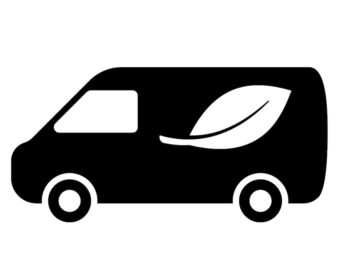Call for European capitals to introduce zero-emission freight zones by 2030
Governments in the UK and across Europe are being urged to introduce zero-emission freight zones by 2030 to drive take-up of electric vans.

T&E says there would be enough e-vans for European capitals to implement zero-emission freight zones
A new report from Transport & Environment and the Clean Cities Campaign spotlights that electric vans will be key to the decarbonisation of city centres and reveals that zero-emission zones are gaining popularity in Europe.
The majority of these zones are designed as zero-emission freight zones, meaning electric vans will increasingly take centre stage on our streets, but the groups are calling for more cities, including London, to introduce such schemes.
A recent report published by the Clean Cities Campaign showed 20 Dutch cities – including Amsterdam, Rotterdam and Utrecht – are leapfrogging London by implementing zero-emission zones for freight from next year through private and public partnerships. This is seen as a key factor for electric van sales in the Netherlands being around double that of the UK in 2023 and prompted a call from Clean Cities and more than 40 businesses for the Mayor of London to extend the Congestion Charge exemption for electric vans beyond the Christmas 2025 cutoff date.
According to Transport & Environment and the Clean Cities Campaign, 3.9 million e-vans are projected to be sold in the EU and UK between 2025 and 2030. This would be more than enough to allow all 27 EU capitals, as well as London, to implement zero-emission zones for freight.
The impacted fleets – i.e. fleets with over 100 vans – would absorb only 32% of the total domestic supply, T&E says. If zero-emission zones were extended to cover fleets above 50 or even 20 vans, there would still be enough e-vans available to supply all 28 cities.
The study also shows that there will soon be more electric van models available than diesel and petrol ones. Starting 2026, buyers will have the choice between more e-van models than ICE models (48 vs 46 models).
Battery electric vans will be cheaper to buy than their diesel counterparts by 2027, the study also shows, assuming that their battery costs decline in line with BloombergNEFʼs latest projections. When looking at total cost of ownership (TCO), which includes operating costs such as fuel and maintenance, previous studies found that battery electric vans were already cheaper than their diesel counterparts in the majority of European countries surveyed when financial incentives were taken into account.
Barbara Stoll, senior director of T&Eʼs Clean Cities Campaign, said: “With more than enough vans to go round, and e-vans expected to be cheaper than their diesel alternatives by 2027, businesses should have everything they need to operate in zero-emission freight zones across Europe.”
The full report is online here.
Clean Cities CampaignTransport & EnvironmentZero-emission freight zone

